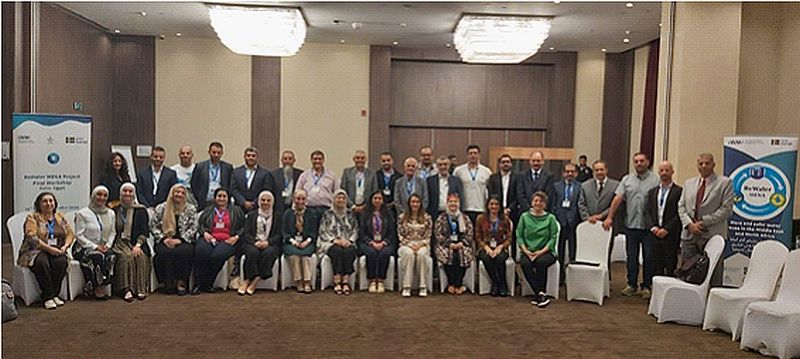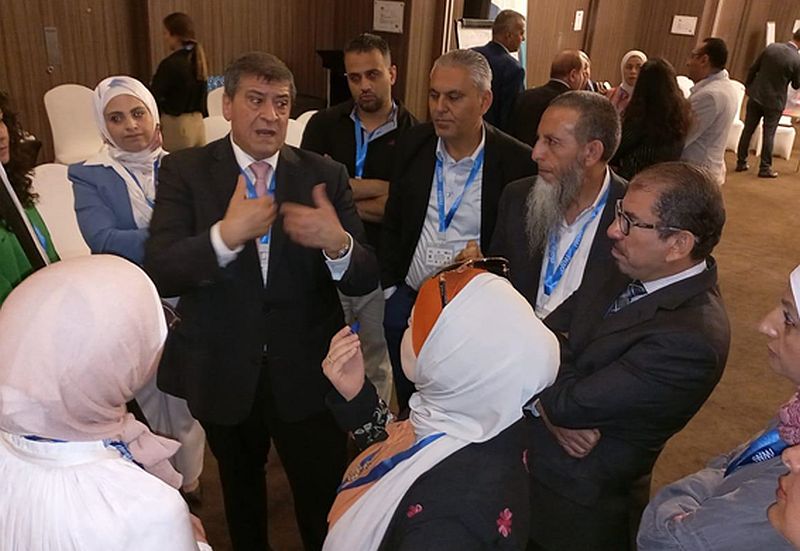Closing Workshop of the ReWater MENA Project after four years of research

The ReWater MENA project, a project funded by the Swedish International Development Cooperation Agency (Sida) and led by the International Water Management Institute (IWMI), reached its end after four intense years of collaborative research between different partners. The project, whose aim has been the expansion of safe water reuse in the Middle East and North Africa (MENA), was concluded in the Steigenberger Hotel, in Tahrir Square, Cairo during the 19th and 20th of September 2022.
During the workshop, organized by IWMI and moderated by REOS Partners, researchers and main collaborators synthetized the key-learnings and practical outputs of the ReWater MENA project. IWMI Senior Researcher and Project Leader of ReWater MENA, Javier Mateo-Sagasta, welcomed participants and opened the session with a presentation of key-messages, facts and figures of the current state of wastewater treatment and reuse in the region. “MENA faces a deep water crisis and we are not doing enough to solve it”, reinforced Mateo-Sagasta in his speech. In fact, increased water scarcity is forecasted to make GDP drop down between 6 to 14% by 2050 and reduce labor demand by up to 12%. That is why, the region needs to accelerate the reuse water sector to meet SDG6 by recovering and reusing loss of wastewater, when feasible, and by making (indirect) reuse safer. Even though the number of reuse projects in the MENA region has double every decade since 1990, the region needs to accelerate the replication of success stories, concluded the ReWater MENA Project Leader, Mateo-Sagasta.

The two-day event brought together different stakeholders from Lebanon, Egypt and Jordan, where ministers, researchers, professors and advisors shared and discussed the most important learning and policy recommendations of the project. During the closing workshop, the representatives from the different countries had break-out working groups sessions to present the local reuse plans designed in the three countries and discussed potential implementation with uptake partners and donors. “What I found most valuable about this workshop was the interaction between participants and the exchange of experiences”, said one of the participants during the closing event. “Learning from the experiences from Jordan and Egyptians colleagues has been very enriching” commented another. Participants in the workshop also reflected on the next policy and science activities needed to continue supporting the expansion of water reuse in the region.
Apart from the workshop, the four-year project will also conclude with a sourcebook to be released in autumn 2022 in the lead up to the COP17 to be held in Egypt. The book, composed of three main sections, reveals all the new and relevant data on the water reuse sector in the MENA region, a collection of the success stories and a list of guidelines and recommendations to further implement in the sector.
